AHPs not always represented at the top tablepublished at 10:34 BST 20 September 2016
Gabrielle Stewart from the Allied Health Professions Federation says AHPs often are not represented at the top table.
Health professionals give evidence to MSPs on GP and other staff recruitment shortages
The issue of teacher training students is the focus of this week's topical question
The Scottish government leads a debate on the effects of the Brexit vote on the country's economy
SNP MSP Stuart McMillan leads this afternoon's member's debate entitled 'Eye Health Week'
Craig Hutchison and Colin Bell
Gabrielle Stewart from the Allied Health Professions Federation says AHPs often are not represented at the top table.
SNP MSP Maree Todd pharmacist worked for twenty years as a clinical pharmacist working in a psychiatric hospital.
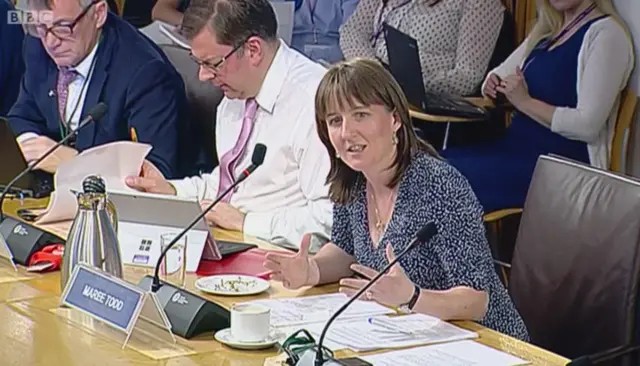
SNP MSP Maree Todd
Ms Todd says pharmacists can be "hidden in full view" and are an under utilised force.
Aileen Bryson from the Royal Pharmaceutical Society says the driver at the moment is the shortage of GPs.
She says pharmacists have not been good at shining a light on the profession.
Aileen Bryson from the Royal Pharmaceutical Society says it can work well with the pharmacist within a GP practice, there are models where a pharmacist works part-time in a practice and sometimes a pharmacy is the only point of contact.
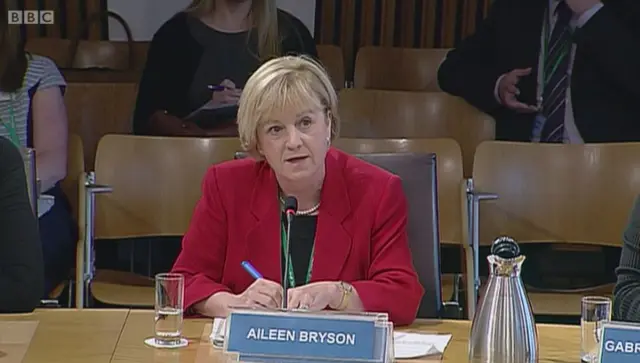
"It really is about what will work best in a geographical locality."
She says: "There is no one ideal model."
Ms Bryson says there needs to be transformational change.
Dr Sian Tucker says GPs are doing things that could be done by other people.
Aileen Bryson from the Royal Pharmaceutical Society says the public need to be educated about going to the right person at the right time.
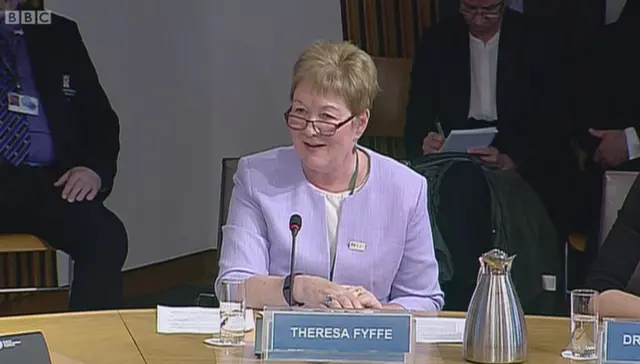
Theresa Fyffe from the Royal College of Nursing says the skills of the multidisciplinary team must be valued.
Ms Fyffe says: "There is a shortage of GPs but there is a shortage of other health professionals."
Dr Tucker says none of the community hubs that she is aware of would be for patients to travel to.
She says the hub would take calls from NHS 24 and try to deal with it over the phone or outsource the work to local GPs.
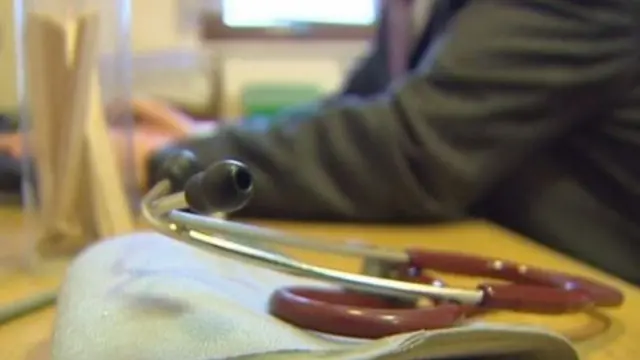
Dr Tucker says it is not to replace GPs although it has come to light because of the crisis in GP recruitment.
She says this new programme should work with local GPs to improve the service and create a multi-disciplinary team.
In August the the health secretary launched the Report of the National Review of Primary Care Out of Hours Services on November 30, 2015, following its commission on January 30, 2015:
 Image source, KTSDESIGN/SCIENCE PHOTO LIBRARY
Image source, KTSDESIGN/SCIENCE PHOTO LIBRARYProfessor Sir Lewis Ritchie OBE (the Review Chair) led this work with the following aims to review the current delivery landscape and recommend action to ensure primary care out of hours services:
Membership of the Review included a diverse range of public, professional and other stakeholders. The main Review Group, which provided the overall decision making and governance function, had a wide range of members from health, social care, voluntary and third sectors.
The number of GPs working in Scotland has fallen and one in five practices has a vacancy, according to official statistics released in June.
The survey found that 90 fewer full-time family doctors were working in Scotland in 2015, compared to 2013.
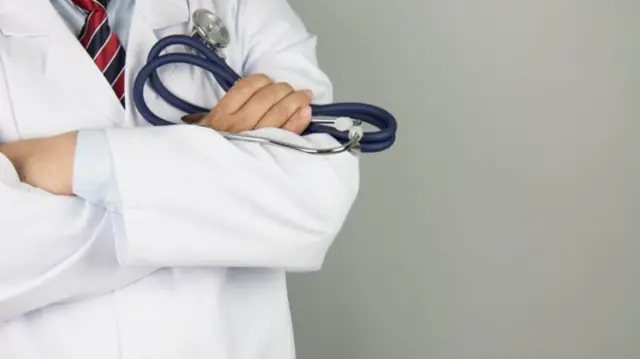 Image source, Thinkstock
Image source, ThinkstockLabour accused the Scottish government of creating the "biggest crisis in family doctors for a generation".
Health Minister Shona Robison announced £2m worth of funding to improve GP recruitment and retention.
The main findings of the The Primary Care Workforce Survey, external were:
Dr Sian Tucker from the Royal College of General Practitioners says better use of resources in mental health must happen.
 Image source, Thinkstock
Image source, ThinkstockDr Tucker says: "We can't employ new staff we have to rearrange what we have got."
She highlights the important role of the third sector.
Green MSP Alison Johnstone says there very much needs to be an increase in GPs but points out that the Allied Health Professions Federation also focused on the multidisciplinary team.
Gabrielle Stewart from Representative of Allied Health Professions Federation says the role of AHPs is often misunderstood like physiotherapy only being for backs and knees.
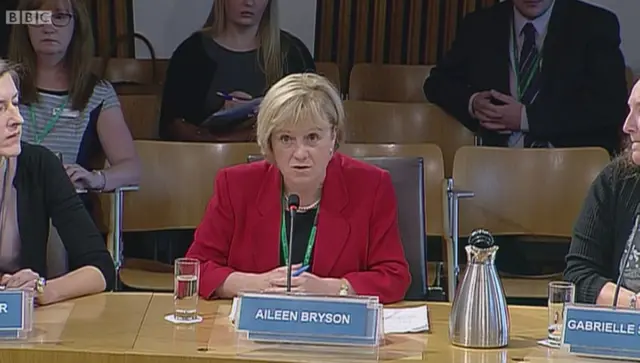
Aileen Bryson from the Royal Pharmaceutical Society says there is a lot of confusion about hubs.
She says the committee talked about GP hubs but it should be community hubs to include all the professionals.
Theresa Fyffe from the Royal College of Nursing says hubs are not helpful if a patient has to travel far to access it.
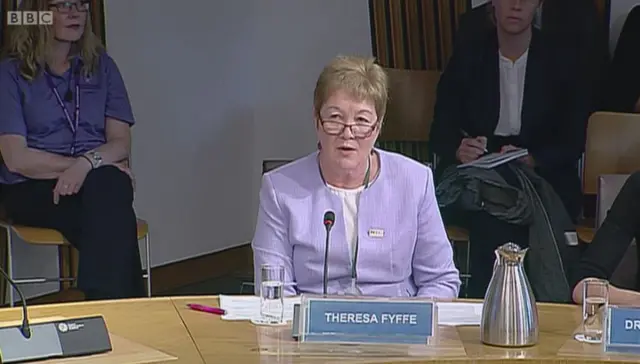
Ms Fyffe says integration is not just about health professionals, but also social workers and the third sector and perhaps a network is better than a hub.
She says there must be more focus on the multidisciplinary team.
Committee convener and Labour MSP Neil Findlay ask about GP hubs.
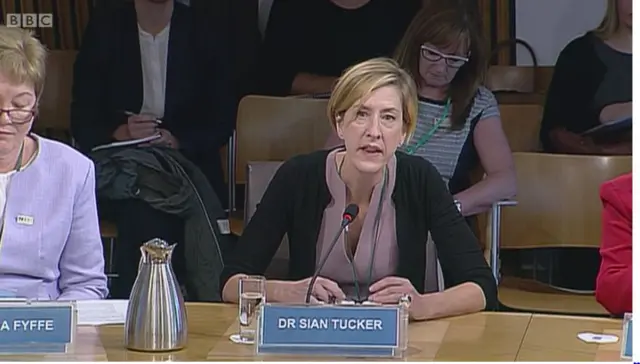
Dr Sian Tucker from Representative Royal College of General Practitioners says there are three types of hub:
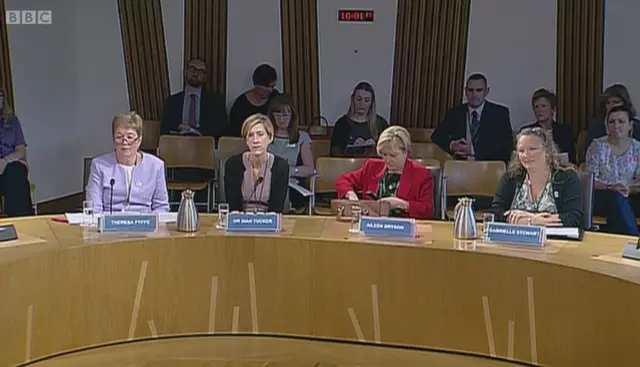
First up we have:
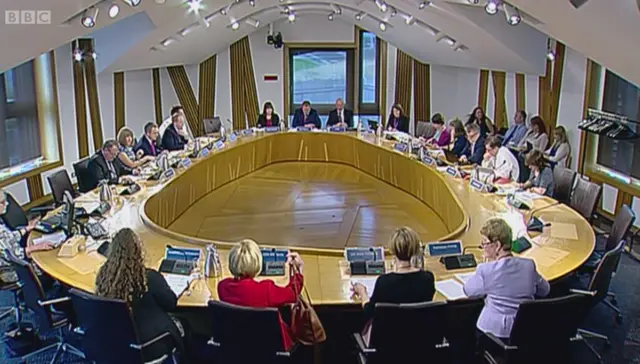
The committee agrees to make no recommendations on the Health and Care Professions Council (Miscellaneous Amendments) Rules Order of Council 2016 (SSI 2016/693), external.
The Health Committee, external will begin by considering the following negative instrument— Health and Care Professions Council (Miscellaneous Amendments) Rules Order of Council 2016 (SSI 2016/693), external.
The policy behind this Instrument is to make amendments to the Rules to:
A warning Scotland faces a shortfall of 830 family doctors has sparked fresh calls for Nicola Sturgeon to tackle the GP "crisis".
The Scottish Conservative party has urged the first minister to commit to spending more on general practice.
 Image source, Thinkstock
Image source, ThinkstockThe Royal College of General Practitioners (RCGP) is forecasting the GP deficit will happen by 2020.
The Scottish government said Scotland had the highest number of GPs per head in the UK.
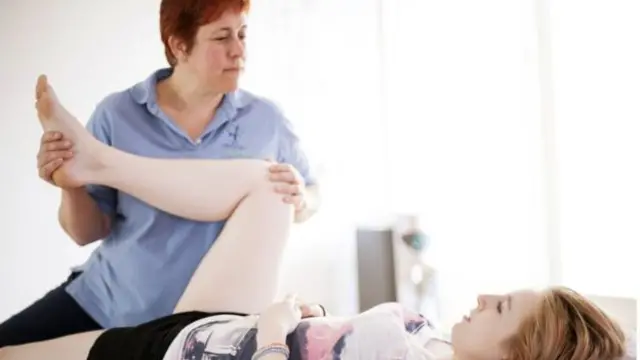 Image source, SCIENCE PHOTO LIBRARY
Image source, SCIENCE PHOTO LIBRARYAllied Health Professions Federation Scotland represents a number of health professions
Workforce planning and development to reflect the changing demands on the multidisciplinary team, the assets (e.g. interface with other sectors) already available in that team, and new models of care rather than the alternative uni-professional focus
Health and Social Care Partnerships and community health hubs have a unique opportunity to shape and support this work to ensure that the local population has access to the services they require.
The transformation of primary care, the development of multidisciplinary hub teams and further collaboration between pharmacists and GP practices will fundamentally improve patient outcomes and reduce pressure at the pinch points in the current system.
We believe the current three year funding and new pharmacist posts gives an ideal opportunity to robustly evaluate the new ways of working with a view to ultimately providing a national strategic approach to holistic person centred care in the primary care setting .
 Image source, Thinkstock
Image source, ThinkstockPharmacists working in community hubs
"The RPS believes health and wellbeing will be improved by ensuring workforce plans recognise and use the skills and experience of pharmacists to support patients who take medicines as part of a comprehensive health and social care team approach within people’s own localities."
Last year an independent review said a new blueprint was needed for out-of-hours medical services in Scotland, an independent review has concluded.
It highlighted the need for multi-disciplinary teams working together at urgent care resource hubs across Scotland.
The teams would include GPs, nurses, physiotherapists, community pharmacists, social care workers and other specialists.
The review, external was commissioned by the Scottish government.
It forms part of the government's plans to transform primary care services in light of the demands of Scotland's ageing population, and as health and social care services are integrated.
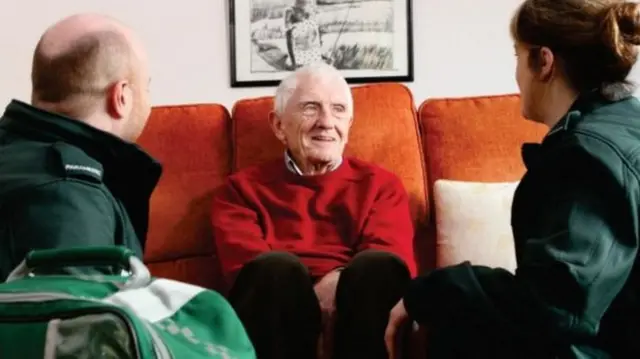 Image source, NHS SCOTLAND
Image source, NHS SCOTLANDThe 28 recommendations, made by Professor Sir Lewis Ritchie in the Primary Care Out-of-Hours Review, have been welcomed by Health Secretary Shona Robison.
The other recommendations include:
The Health Committee, external will shortly take evidence on GPs and GP hubs from:
 Image source, bbc
Image source, bbcDoctors and nurses will give evidence on GPs and GP hubs.
The committee will then take evidence from